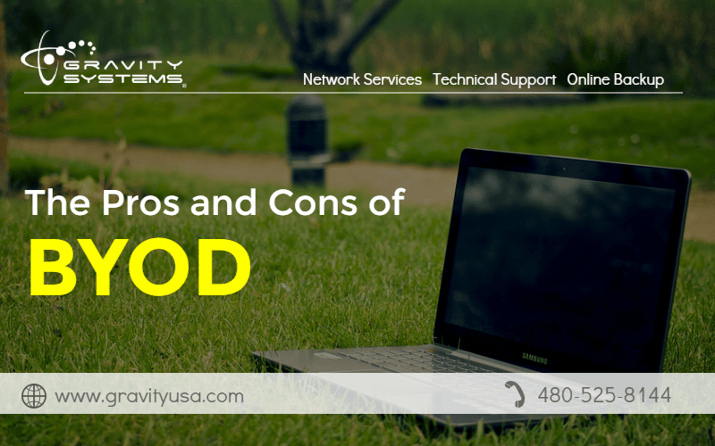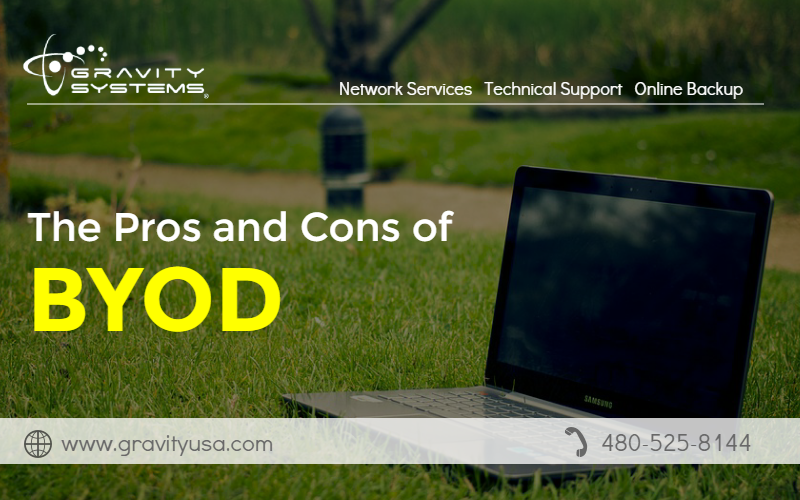
If you're familiar with the acronym BYOB (“Bring Your Own Beer”), then it doesn't take much of a leap to figure out that in the IT world, BYOD stands for “Bring Your Own Device.” The policy of allowing your employees to make use of their own mobile devices to access work data has some notable advantages, but it can also open the door to serious problems. Here's what our Austin business IT support team has to say about the pros and cons of BYOD.
Pros: BYOD is an attractive proposition for many employees – so attractive, in fact, that it's been named as a factor in swaying up to 44 percent of new hires to join a specific company. So if you're interested in boosting the quality of your applicants, a BYOD policy could help. It also spares you the cost of buying a fleet of devices for your entire team, not to mention the cost of connectivity, maintenance and upgrades, because the employees are footing the bill.
Cons: BYOD can create multiple security and privacy nightmares for your business. When you have no control over which devices your employees are using, you have to protect your IT against every major platform and operating system. Employees may abuse your security policies, download data and then take it with them when they leave your company, access insecure sites and commit other kinds of mayhem at your expense.

A BYOD policy only benefits your business if you take appropriate steps to regulate it. Create a usage policy that everyone must adhere to, and limit the number of supported devices and systems. Our Austin IT managed services team can help by creating, monitoring and maintaining your data on secure servers that limit access according to password permissions. Ask Gravity Systems how to keep your BYOD from becoming a PITA!
Related Post: MPLS: What Is It, and Do You Need It?

_NO_BCS_bigger_weird_green_clear.png?width=100&name=for-website_large(save-at-500-tall)_NO_BCS_bigger_weird_green_clear.png)


